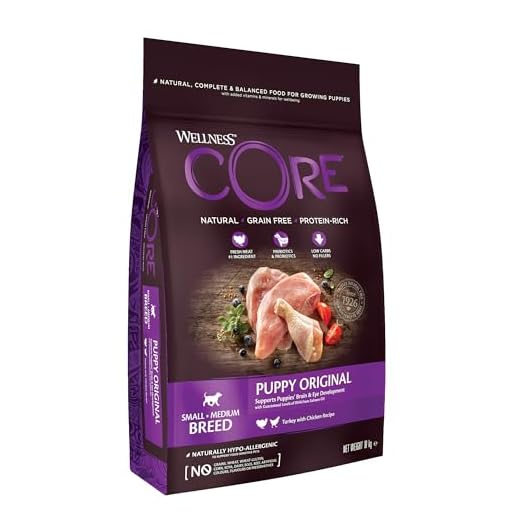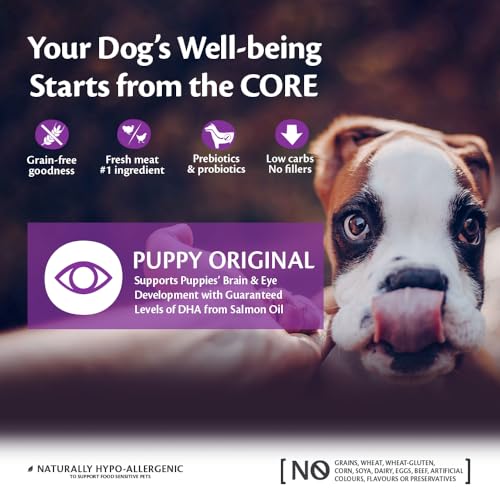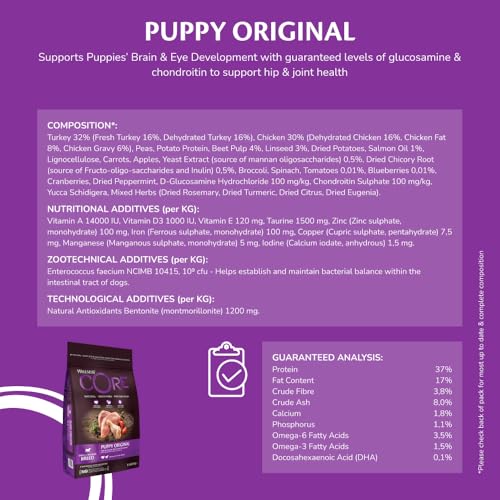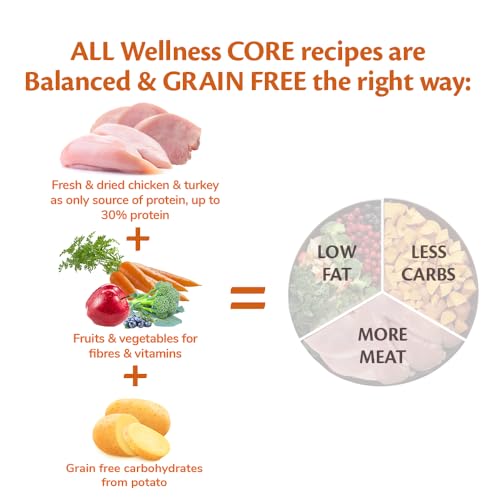








As a proud owner of a Poochon puppy, I’ve spent countless hours researching the best diet for my little bundle of joy. Poochons, a delightful cross between a Poodle and a Bichon Frise, are known for their playful nature, intelligence, and affectionate personalities. Ensuring they receive the right nutrition during their formative months is crucial for their overall health and development.
When I first brought my Poochon puppy home, I was overwhelmed by the plethora of dog food options available. Each brand seemed to promise something different, and it was challenging to discern what was genuinely beneficial versus clever marketing. I wanted to provide my puppy with food that supported his growing bones, energetic playfulness, and glossy coat, but I needed clear, factual information to make an informed choice.
After extensive research, consultations with veterinarians, and trial and error, I discovered some key factors to consider when choosing the best dog food for Poochon puppies. Ingredients, nutritional balance, and the specific needs of this hybrid breed all play a significant role. In this article, I’ll share my findings and recommendations, hoping to help fellow Poochon owners navigate the often confusing world of puppy nutrition with confidence.
Whether you’re a first-time Poochon owner or an experienced dog lover, understanding the unique dietary requirements of your furry friend is essential. By focusing on high-quality ingredients and balanced nutrition, you can ensure your Poochon puppy grows up healthy and happy. Let’s delve into the specifics of what makes an excellent diet for these adorable pups.
Nutritional Requirements for Poochon Puppies
As a dedicated Poochon owner, I want to ensure my puppy gets the best start in life. The unique needs of Poochon puppies mean they require a diet tailored to support their growth, energy levels, and overall health. Understanding these specific nutritional needs is crucial for their development.
Poochon puppies, a delightful mix of Poodle and Bichon Frise, have particular dietary needs that stem from both parent breeds. Ensuring their food contains the right balance of nutrients is essential for their rapid growth phase and to prevent potential health issues.
Key Nutrients for Poochon Puppies
To support the healthy development of my Poochon, I focus on the following key nutrients:
- Protein: Essential for muscle growth and repair, high-quality protein sources like chicken, lamb, and fish are vital. Poochon puppies need a protein-rich diet to support their active lifestyle and growth.
- Fats: Healthy fats provide energy and support brain development. Ingredients like fish oil and flaxseed are excellent sources of omega-3 and omega-6 fatty acids, which are crucial for a healthy coat and skin.
- Carbohydrates: While not the primary nutrient, carbs provide necessary energy. I ensure my puppy’s diet includes easily digestible carbohydrates like sweet potatoes and brown rice.
- Vitamins and Minerals: Essential for overall health, vitamins like A, C, D, and E, along with minerals such as calcium and phosphorus, are crucial. These nutrients support bone growth, immune function, and overall development.
- Fibre: Important for a healthy digestive system, fibre helps prevent constipation and supports nutrient absorption. Ingredients like pumpkin and beet pulp are excellent sources of fibre.
In addition to these nutrients, ensuring the food is free from artificial preservatives, colours, and flavours is also essential. Poochon puppies have sensitive stomachs, and high-quality, natural ingredients help prevent digestive issues and allergic reactions.
By prioritising these nutritional needs, I can ensure my Poochon puppy grows into a healthy, happy, and active adult dog. Selecting a balanced diet tailored to their specific requirements is the first step towards achieving this goal.
Choosing the Right Ingredients for Your Poochon Puppy
When selecting the best food for my Poochon puppy, I pay close attention to the quality of the ingredients. A well-balanced diet is crucial for the healthy growth and development of my little furry friend. I always look for foods that provide a good mix of protein, fats, carbohydrates, vitamins, and minerals to ensure my puppy gets everything they need.
One of the first things I check is the source of protein. High-quality animal protein should be the main ingredient, as it supports muscle development and overall health. Chicken, lamb, and fish are excellent choices, offering a rich source of essential amino acids. I avoid foods with vague terms like “meat meal” or “by-products” as these can include inferior sources of protein.
Essential Nutrients for Poochon Puppies
Next, I make sure the food includes healthy fats. Fats are vital for energy and maintaining a shiny coat. Ingredients like fish oil and flaxseed are great because they are high in Omega-3 and Omega-6 fatty acids, which also support brain development. It’s important to avoid foods with excessive amounts of unhealthy fats, such as those from generic animal fat sources.
Carbohydrates provide the necessary energy for my puppy’s playful activities. I prefer complex carbs like sweet potatoes and brown rice, which offer sustained energy release and are easier to digest than fillers like corn and soy. Whole grains and vegetables also contribute beneficial fibre, aiding in digestion and maintaining a healthy weight.
Vitamins and minerals are another crucial component. Ingredients like fruits and vegetables not only add natural sources of vitamins and antioxidants but also enhance the taste. Spinach, carrots, blueberries, and apples are some of the ingredients I look for. I also ensure the food is fortified with essential minerals such as calcium and phosphorus, which are important for bone development.
Finally, I pay attention to any potential allergens. Common allergens like wheat, corn, and soy can cause digestive issues or allergic reactions in some puppies. Opting for hypoallergenic or grain-free options can sometimes be necessary, especially if I notice any signs of food sensitivities.
By carefully selecting ingredients that are nutritious, natural, and free from harmful additives, I can help ensure my Poochon puppy grows up healthy and strong. Making informed choices about their diet is one of the best ways I can show my love and care for my new companion.
Grain-Free vs. Grain-Inclusive: What’s Best for Poochon Puppies?
Choosing the right food for your Poochon puppy can be a challenging decision, especially with the debate between grain-free and grain-inclusive diets. Both options have their advantages and potential drawbacks, and understanding these can help you make an informed choice that suits your pup’s needs.
Grain-free diets have gained popularity in recent years, with proponents arguing that they mimic the ancestral diet of dogs, which is naturally low in grains. These diets typically replace grains with ingredients like potatoes, lentils, or peas, providing the necessary carbohydrates and fibre. For Poochon puppies, grain-free options might be beneficial if they have grain sensitivities or allergies, potentially leading to better digestion and healthier skin and coat.
The Case for Grain-Inclusive Diets
On the other hand, grain-inclusive diets have been a staple in dog nutrition for decades. Grains such as rice, oats, and barley are rich in essential nutrients like fibre, vitamins, and minerals. These ingredients can aid in digestion and provide a steady source of energy for growing Poochon puppies. Additionally, grains can be more cost-effective, making grain-inclusive foods an accessible and nutritious choice for many pet owners.
However, it’s essential to monitor your puppy’s response to either type of diet. Some Poochons might thrive on a grain-free diet, showing improvements in energy levels and coat health. Others may do equally well, if not better, on a diet that includes grains. The key is to observe your puppy’s overall health, including digestion, energy levels, and skin condition, and adjust their diet accordingly.
Here are some considerations when deciding between grain-free and grain-inclusive diets for your Poochon puppy:
- Allergies and Sensitivities: If your puppy shows signs of grain allergies, such as itching or digestive issues, a grain-free diet might be worth trying.
- Nutrient Balance: Ensure the food provides balanced nutrition, regardless of whether it includes grains or not. Look for high-quality proteins, healthy fats, and essential vitamins and minerals.
- Cost and Accessibility: Grain-inclusive foods can be more budget-friendly and easier to find, while grain-free options might be more expensive and require careful selection to avoid fillers.
- Veterinarian Advice: Always consult your vet when making significant changes to your puppy’s diet, as they can provide personalised recommendations based on your Poochon’s specific health needs.
In conclusion, both grain-free and grain-inclusive diets can be suitable for Poochon puppies, depending on their individual needs and health conditions. By carefully monitoring your puppy’s response and consulting with your veterinarian, you can choose the best diet to support their growth and well-being.
Highly Recommended Dog Food Brands for Poochon Puppies
Choosing the right food for your Poochon puppy is essential for their health and well-being. As a mix between a Poodle and a Bichon Frise, Poochon puppies have unique nutritional needs that must be met for their growth and development. With so many options on the market, finding the best brand can be overwhelming.
I’ve researched and compiled a list of some of the most recommended dog food brands that cater specifically to the dietary requirements of Poochon puppies. These brands are known for their high-quality ingredients, balanced nutrition, and positive reviews from pet owners.
Recommended Dog Food Brands
- Royal Canin – Known for its breed-specific formulas, Royal Canin offers a small breed puppy formula that is perfect for Poochon puppies. This food is designed to support the energy needs and digestive health of small breed puppies.
- Hill’s Science Diet – This brand is widely trusted by veterinarians and provides a puppy formula rich in DHA from fish oil for healthy brain and eye development, as well as high-quality protein for muscle growth.
- Blue Buffalo – Blue Buffalo’s Life Protection Formula for puppies includes real meat, wholesome grains, and garden veggies and fruit. It’s free from chicken or poultry by-product meals, corn, wheat, and soy, making it an excellent choice for puppies with food sensitivities.
- Wellness Complete Health – Wellness offers a natural puppy food that includes premium proteins and wholesome grains. It’s fortified with DHA for brain development and antioxidants for immune health.
- Nutro Wholesome Essentials – Nutro’s puppy formula is made with farm-raised chicken, sweet potato, and brown rice. It’s packed with essential nutrients, including omega-3 fatty acids for brain development and calcium for strong bones.
Each of these brands provides balanced nutrition tailored for small breed puppies like Poochons, ensuring they receive the right mix of proteins, fats, and carbohydrates. Always consult with your veterinarian to ensure the chosen food meets the specific needs of your puppy.
How to Gradually Introduce Your Poochon Puppy to New Food
Switching your Poochon puppy to a new type of food requires careful planning and a gradual approach to ensure their digestive system adapts smoothly. This process helps to avoid gastrointestinal issues such as diarrhoea or stomach upset, which can be common in puppies during dietary changes.
To begin, choose a high-quality puppy food that meets the nutritional needs specific to Poochons. Ensure the new food is rich in protein, healthy fats, and essential vitamins and minerals. Once you have selected the right food, follow a step-by-step plan to transition your puppy to their new diet.
Transition Steps
- Start with a small amount: Begin by mixing a small portion of the new food with your puppy’s current food. A good starting ratio is 75% old food to 25% new food. Maintain this mix for a couple of days, monitoring your puppy for any adverse reactions.
- Gradually increase the new food: If your puppy shows no signs of digestive discomfort, increase the new food to 50% after a few days. Continue this ratio for another two to three days.
- Further increase the ratio: Assuming your puppy is adapting well, move to a 75% new food and 25% old food mix. Keep this proportion for a few more days.
- Complete the transition: Finally, after about a week to ten days, you can switch entirely to the new food. By this stage, your puppy’s digestive system should be accustomed to the new diet.
Monitor your puppy throughout this transition period for any signs of gastrointestinal distress such as vomiting, loose stools, or changes in appetite. If any issues arise, revert to the previous ratio and transition more slowly. In some cases, it might be necessary to consult with your veterinarian for advice specific to your puppy’s health needs.
Consistency and patience are key when changing your puppy’s diet. By following these steps, you can ensure a smooth and healthy transition for your Poochon puppy to their new food, supporting their growth and overall wellbeing.
Common Feeding Mistakes to Avoid with Poochon Puppies
Feeding your Poochon puppy the right diet is crucial for their growth and development. However, even well-meaning pet owners can make mistakes that may affect their puppy’s health. Understanding and avoiding these common feeding errors can help ensure your Poochon grows into a healthy adult dog.
Here are some of the most common feeding mistakes and how to avoid them:
Overfeeding or Underfeeding
It’s important to feed your Poochon puppy the correct amount of food. Overfeeding can lead to obesity and related health issues, while underfeeding can result in malnutrition. Always follow the feeding guidelines provided by your vet or the food manufacturer, and adjust based on your puppy’s activity level and growth.
Feeding Human Food
Many human foods are not suitable for dogs and can cause serious health problems. Foods such as chocolate, grapes, onions, and certain nuts are toxic to dogs. Stick to high-quality puppy food formulated specifically for their dietary needs.
Inconsistent Feeding Schedule
Poochon puppies thrive on routine. Feeding them at irregular times can cause digestive issues and anxiety. Establish a regular feeding schedule and stick to it to keep your puppy healthy and happy.
Not Providing Fresh Water
Always ensure your Poochon puppy has access to fresh, clean water. Dehydration can be very dangerous, especially for active puppies. Change the water frequently and clean the bowl daily.
Ignoring Special Dietary Needs
Some Poochon puppies may have allergies or specific dietary requirements. It’s important to be aware of any special needs your puppy might have and choose a food that caters to those requirements. Consult your vet if you notice any signs of food allergies or intolerances.
Switching Foods Too Quickly
When changing your puppy’s diet, it’s essential to do so gradually. Sudden changes can cause digestive upset. Introduce new food slowly by mixing it with the current food over a week or so, gradually increasing the new food’s proportion.
Feeding Table Scraps
Feeding table scraps can encourage bad habits and lead to nutritional imbalances. Stick to dog-approved treats and avoid feeding your puppy from your plate.
Conclusion
Avoiding these common feeding mistakes can help ensure your Poochon puppy grows into a healthy and happy adult dog. Always consult your vet for personalised advice and regularly monitor your puppy’s growth and health. By providing a balanced diet, fresh water, and a consistent feeding schedule, you’ll be setting up your Poochon for a lifetime of well-being.
Best Dog Food For Poochon Puppies
Features
| Part Number | HARRPUP-18 |
| Model | HARRPUP-18 |
| Color | Turkey |
| Size | 18 kg (Pack of 1) |
Features
| Part Number | HARRGFSS-12 |
| Model | HARRGFSS-12 |
| Release Date | 2024-01-01T00:00:01Z |
| Size | 12 kg (Pack of 1) |
| Price history for Harringtons Grain Free Salmon Dog Food | |
|---|---|
|
Latest updates:
|
|
Features
| Part Number | 12231703 |
| Model | 12531981 |
| Release Date | 2014-05-23T00:00:01Z |
| Size | 1 count (Pack of 1) |
| Publication Date | 2014-05-23T00:00:01Z |
| Price history for Beta Puppy Dry Dog Food Chicken | |
|---|---|
|
Latest updates:
|
|
Features
| Part Number | 10773 |
| Model | 10773 |
| Size | 10kg |
| Language | French |
Features
| Size | 500 g (Pack of 42) |
Q&A:
What is the best dog food for Poochon puppies?
The best dog food for Poochon puppies is one that is specifically formulated for small breeds, providing a balanced mix of nutrients suitable for their size and energy levels.
Should I choose dry or wet food for my Poochon puppy?
Both dry and wet food can be suitable for Poochon puppies. It often depends on your puppy’s preferences and any specific dietary needs they may have. Mixing both can also provide variety in their diet.
What ingredients should I look for in dog food for Poochon puppies?
Look for dog foods that have high-quality protein sources like chicken, turkey, or lamb. Additionally, ensure it contains essential vitamins, minerals, and healthy fats for optimal growth and development.
Are there any ingredients I should avoid in Poochon puppy food?
Avoid dog foods containing artificial preservatives, colours, and fillers. Also, be cautious of ingredients like corn, wheat, and soy, which can cause allergies or digestive issues in some dogs.
How often should I feed my Poochon puppy?
Poochon puppies typically require small, frequent meals throughout the day to maintain their energy levels and prevent hypoglycemia. Aim for three to four meals a day, adjusting portion sizes based on their age and activity level.












































